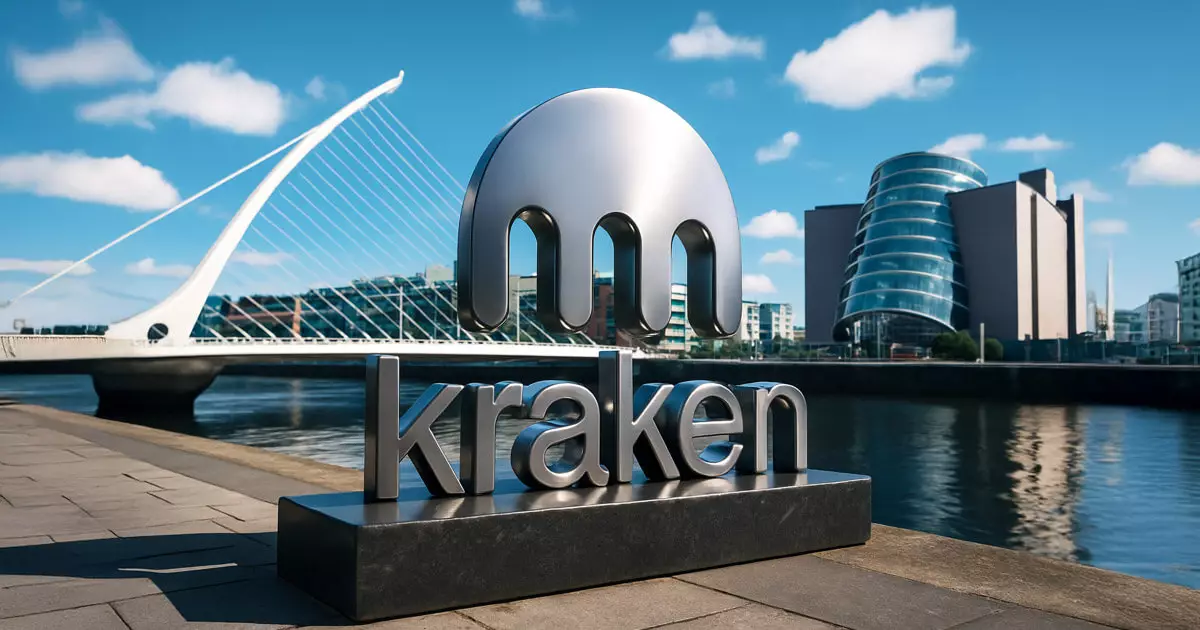The recent announcement that Kraken has secured the first comprehensive Markets in Crypto-Assets (MiCA) license from the Central Bank of Ireland is monumental not just for the exchange, but for the entire cryptocurrency landscape in Europe. As the first major global player to achieve this milestone, Kraken is not merely checking boxes for compliance; they are setting a new precedent that will reverberate throughout the industry. The MiCA framework, which aims to harmonize the regulatory environment for digital assets across the European Economic Area (EEA), acts as a lighthouse for future operations, guiding other businesses in the often murky waters of crypto regulations. This sends a strong signal to both established entities and nascent startups that adhering to regulatory frameworks is not just advisable—it is essential for survival in an increasingly competitive marketplace.
The Competitive Landscape: A Case for Speed
As traditional financial institutions and tech giants steadily encroach on the crypto domain, the speed at which Kraken secured this regulatory badge of honor showcases a calculated foresight. With the rise of Coinbase and other prominent exchanges looking to carve out their niches within the EEA, the timing is crucial. Kraken’s early compliance does not just provide them with a legal advantage; it allows them to claim market share before the regulatory wave peaks. By obtaining the MiCA license ahead of the EU’s imposed deadline, Kraken now enjoys strategic advantages like passporting rights, allowing for streamlined operations across member states. This calculated move puts them in an enviable position against competitors who may still be grappling with local regulatory hurdles.
Implications for Market Participants
What does this mean for individual traders and institutional investors? Simply put, it creates a more robust and legally sound environment for all market participants. With the government’s thumb firmly on the scale of regulation, investors can engage with exchanges like Kraken with a greater sense of security. The legitimacy conferred by a MiCA license helps in fostering trust that can facilitate larger capital inflows. For institutions hesitant to wade into the predominantly unregulated waters of cryptocurrency, Kraken’s compliance might become a deciding factor that could tip them into participation. The norming of regulatory frameworks thus not only creates safety but cultivates an improved investment landscape in the European crypto market.
Future Prospects and Expansive Opportunities
Kraken’s ambition appears to extend beyond simply maintaining a market share; they are actively looking to embrace new opportunities by expanding their service offerings. With the acquisition of a Cyprus-based entity to secure a Markets in Financial Instruments Directive (MiFID) license, Kraken has positioned itself not just as a spot trading platform but as a diversified community that can offer derivatives as well. This dual-licensure paves the way for broader product lines, attracting a varied range of traders interested in both spot and derivatives markets. The market is evolving, and Kraken is poised to serve as a one-stop shop for a multitude of trading strategies that could reshape user engagement for years to come.
Challenges on the Horizon
However, this ambitious journey is fraught with obstacles. The regulatory landscape is far from static, and while compliance today belts certain advantages, tomorrow’s shifts could pose risks just as significant. The potential imposition of additional anti-money laundering checks by national regulators signifies that even a harmonized regime holds its challenges. Companies in the crypto space, including Kraken, must remain vigilant and adaptable, prepared for the ever-evolving regulatory tapestry. The initial advantage gained through early compliance can be eroded if policy changes introduce complexity and friction in operations.
The Future of Decentralized Finance
Regulatory frameworks like MiCA have long-term implications for the decentralization ethos that sparked the crypto revolution. By pushing traditional exchanges to conform to centralized regulations, are we undermining the decentralized principle that made cryptocurrencies appealing in the first place? Despite these concerns, the steep rise in regulatory clarity could paradoxically empower newer decentralized finance models, as they will be developed against a backdrop of understanding and compliance rather than chaos. It will be fascinating to see whether institutions can coexist with decentralized platforms or if they will drive innovation away from traditional exchanges entirely.
Kraken’s acquisition of the MiCA license is not just a notch in their regulatory belt; it’s an inflection point that could significantly shape the future of cryptocurrency exchanges in Europe and beyond. It carries with it a mixture of promises and challenges that will need to be navigated carefully as the landscape evolves.
















Leave a Reply